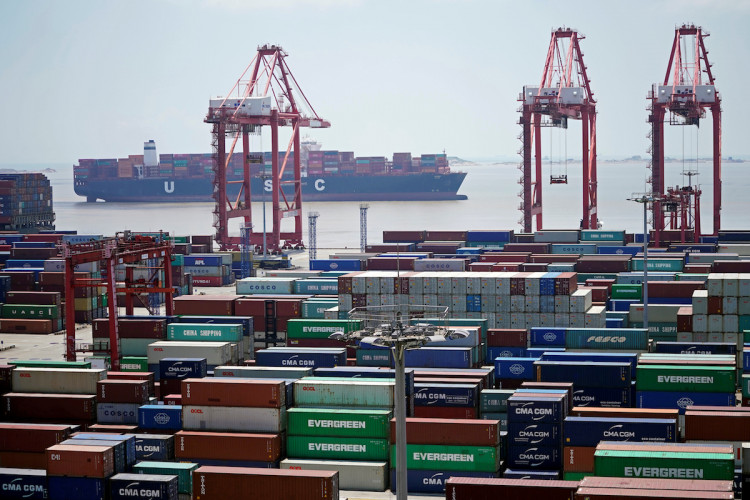China continues to take a beating from Trump's trade war with exports to the United States plummeting 23%, year-on-year, said the General Administration of Customs (GAC) that collects the value-added tax (VAT), customs duties, excise duties, and other indirect taxes.
GAC also said China's total worldwide exports in November dropped 1.1% from a year ago. The reduction in China's November exports was far larger than analysts had expected and might be a reason why China wants to keep talk of a phase one interim deal alive. Exports were expected to improve 0.8% in November as U.S. retailers and companies ramped-up spending before the lucrative Christmas shopping season. This didn't occur, indicating front loading is taking a toll of China's exports to the U.S.
Analysts said the plunge in November was the worst for exports to the U.S. since February 2019. The decline is also the 12th straight monthly drop. The Trump administration declared a trade war on China 18 months ago and has levied more and more tariffs on Chinese goods entering its borders. China has responded with retaliatory tariffs of its own.
The stalled phase one deal, which was supposed to have been signed in October might now take place before the Chinese Lunar New Year on January 20, 2020, said sources in China. Washington, however, seems more optimistic than Beijing in this regard. Sources in the Trump administration told U.S. media the White House still expects a phase one deal to be completed before Dec. 15, the date when the latest round of U.S. tariffs kick-in.
Whatever this deal might be, the damage to both economies by Trump's trade war will have b been enormous. In the first nine months, U.S. exports to China fell 15.5% compared with the same period in 2018. This was a bigger drop than the 13.5% fall for Chinese imports. U.S. agricultural exports to China have fallen by $2 billion.
"Weak global demand, especially in major trading partners such as the U.S., EU, and Japan, has dragged on (China's) export growth" said Wang Youxin, a researcher at the Bank of China Institute of International Finance. "Looking ahead, exports depend on the progress of the trade talks. If the phase one deal is reached, and there's a rollback of tariffs, companies may become more confident and exports could rise."
Wang also said the weaker yuan in November reduced the dollar value of exports.
On the other hand, China's imports from the U.S. rose in November rose for first time since Aug. 2018. The increase amounted to 2.7% year-on-year. The import recovery probably indicates a short-term stabilization in the Chinese economy, claims Larry Hu, head of China economics at Macquarie Securities Ltd. in Hong Kong.
Some of increase might be due to increased goodwill purchases of American farm products ahead of a phase one deal. The value of China's soybean imports from the world rose 41% from a year ago





